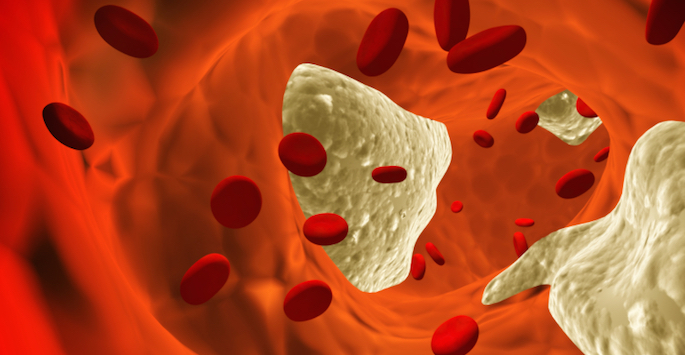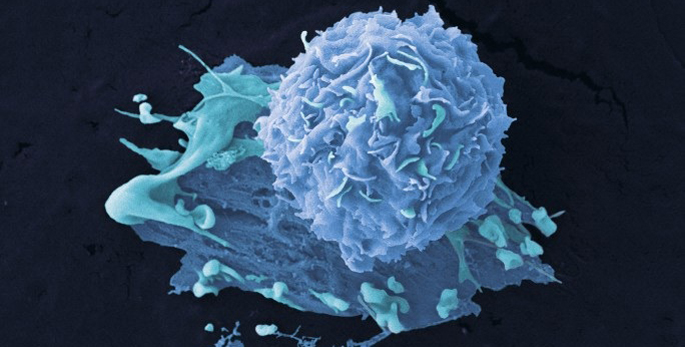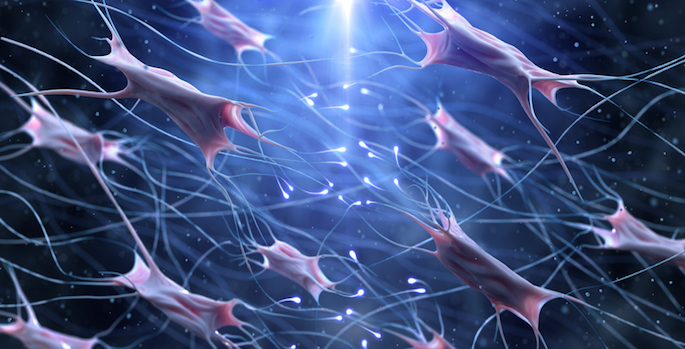Featured-Reporter
-

‘Scavenger’ molecule may point to new atherosclerosis treatment
A small-molecule “scavenger” that reduces inflammation and formation of atherosclerotic plaque in blood vessels in mice potentially could lead to a new approach for treating atherosclerosis in humans, according to researchers at Vanderbilt University Medical Center. Read MoreAug 20, 2020
-

Study gauges specific site stomach cancer risks among ethnic groups
Non-white Americans, especially Asian Americans, are at disproportionately higher risk for gastric cancer compared to non-Hispanic white Americans. A new study breaks down this risk according to specific ethnicities and locations within the stomach. Read MoreAug 6, 2020
-

Pseudoislet system expected to advance pancreas and diabetes research
The multicellular, 3-D structure of human pancreatic islets — the areas of the pancreas containing hormone-producing or endocrine cells — has presented challenges to researchers as they study and manipulate these cells’ function, but Vanderbilt University Medical Center researchers have now developed a pseudoislet system that allows for much easier study of islet function. Read MoreJul 30, 2020
-

New space bolsters infectious disease and immunology discovery
The Vanderbilt Institute for Infection, Immunology and Inflammation (VI4) recently moved into its new research and administrative home. Read MoreJul 9, 2020
-

New method captures early viral-host protein interactions
Researchers have developed a method to identify the primary interactions between incoming viral RNA genomes and host proteins. Read MoreMay 7, 2020
-

Study finds AI can categorize cancer risk of lung nodules
Computed tomography scans for people at risk for lung cancer lead to earlier diagnoses and improve survival rates, but they can also lead to overtreatment when suspicious nodules turn out to be benign. Read MoreMay 7, 2020
-

Research team awarded $9 million to study extracellular RNA in colorectal cancer
A multidisciplinary team of investigators at Vanderbilt University and Vanderbilt University Medical Center has received a program project grant from the National Cancer Institute to explore extracellular RNA in colorectal cancer. Read MoreApr 15, 2020
-

Post-transplant diabetes may be reversible: study
Post-transplantation diabetes mellitus (PTDM), a common complication of immunosuppressive drugs that are given to prevent transplant rejection, may be reversible and at least partially preventable, researchers at VUMC report. Read MoreFeb 20, 2020
-

Barbershops targeted to improve health of black men
Black men with high blood pressure could benefit from a research study beginning this month to check their vitals while they are getting a haircut at a barbershop. Read MoreFeb 18, 2020
-

Algorithm helps improve coronary calcium detection
A new algorithm for artificial intelligence-assisted calcium scoring can accurately determine cardiovascular risk across a range of CT scans and in a racially diverse population. Read MoreFeb 13, 2020
-

Team tracks integrin’s role in lung function
Beta-1 integrin, a critical component of epithelial extracellular matrix receptors, is essential for normal lung function in adulthood, researchers at VUMC have discovered. Read MoreFeb 6, 2020
-

VUMC-led team isolates antibody that blocks bird flu
VUMC scientists are redoubling their efforts to help people fight off bird flu. Their focus is H7N9, one of the most dangerous of the influenza viruses that have been transmitted from birds to humans. Read MoreDec 12, 2019
-

Team set to study undiagnosed congenital diarrhea in infants
Researchers at four institutions, including Vanderbilt, have been awarded a five-year, $9.4 million federal grant to tackle undiagnosed congenital diarrheas caused by a single gene mutation. Read MoreOct 24, 2019
-

Study finds men have higher mortality rate after breast cancer diagnosis
A new study shows men with breast cancer are more likely to die than their female counterparts, across all stages of disease. Read MoreOct 17, 2019
-

Nobel laureate Südhof reviews his landmark signaling research
The human brain consists of perhaps as many as 1,000 trillion synapses, which transmit signals from one nerve cell to another with amazing speed, precision and plasticity. Read MoreOct 10, 2019
-

Research team sorts out drug screen false positive results
Vanderbilt investigators have identified 13 previously unknown drug compounds that cause false positive screenings for amphetamines, buprenorphine (an opioid), cannabinoids and methadone. Read MoreOct 2, 2019
-

Zebrafish aid effort to regenerate damaged retinas
According to a new study, the tiny zebrafish may hold the secret to regenerating damaged retinas in humans. Read MoreSep 5, 2019
-

Discovery may point to better treatments for Type 1 diabetes
Researchers have made a paradigm-shifting discovery that could lead to new treatments, better health and longer life for patients with Type 1 diabetes. Read MoreAug 22, 2019
-

Cellular engines of wound repair have distinct roles
Vanderbilt investigators have now discovered that, in contrast to prevailing dogma, fibroblasts are not all alike; instead, they have distinctive functions following tissue injury. Read MoreAug 8, 2019
-

Team’s study reveals details of new DNA repair pathway
Investigators have discovered how a DNA repair pathway protein shields sites of damage to avoid mutations and maintain genome integrity. Read MoreJul 25, 2019